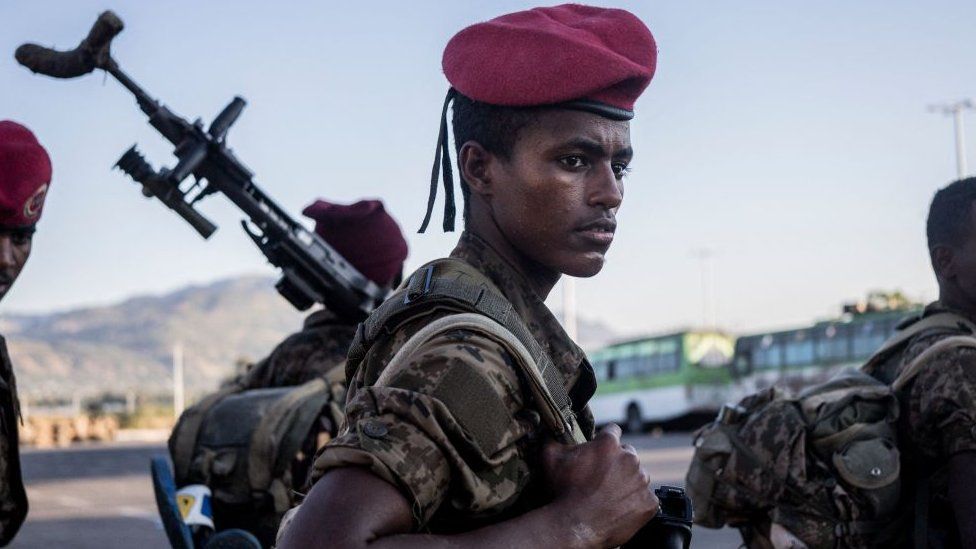Ethiopia’s government has declared a “humanitarian truce” in its 16-month conflict with forces from the northern Tigray region.
The civil war has left more than five million people in need of food aid and none has been delivered to Tigray since mid-December.
The announcement follows a visit to Ethiopia by US Special Envoy for the Horn of Africa David Satterfield.
The Tigrayan forces have yet to respond to the government’s move.
The head of the World Health Organization (WHO) Tedros Adhanom Ghebreyesus, who is from Tigray, has described the situation there as “catastrophic” and accused the Ethiopian government of preventing aid from getting through.
Ethiopia accuses the Tigray People’s Liberation Front (TPLF) of stopping supplies from reaching those in need.
There have been reports from the region that people are dying from hunger or the lack of medical supplies, the BBC’s Ethiopia correspondent Kalkidan Yibeltal says.
- EXPLAINER: What’s stopping aid reaching Tigray?
- BACKGROUND: Ethiopia’s Tigray war – and how it erupted
- WATCH: The hidden side of Ethiopia’s civil war
In its statement on Thursday, the government said that the truce was “indefinite” and “effective immediately”, but added that it would only improve the lives of people in the north of the country if the move was reciprocated.
It called on the Tigrayan forces to “stop further aggression and withdraw from areas they have occupied in neighbouring regions”.
Fighting broke out in November 2020 following months of tension between the federal authorities and the TPLF, which governed Tigray.
Within weeks, Prime Minister Abiy Ahmed said the conflict was over when federal forces took the regional capital Mekelle. But the TPLF later fought back and regained control of much of Tigray.
The protracted conflict has led to thousands being killed and left a humanitarian disaster in its wake.
Up to now, international efforts to end the fighting have not borne fruit.

































